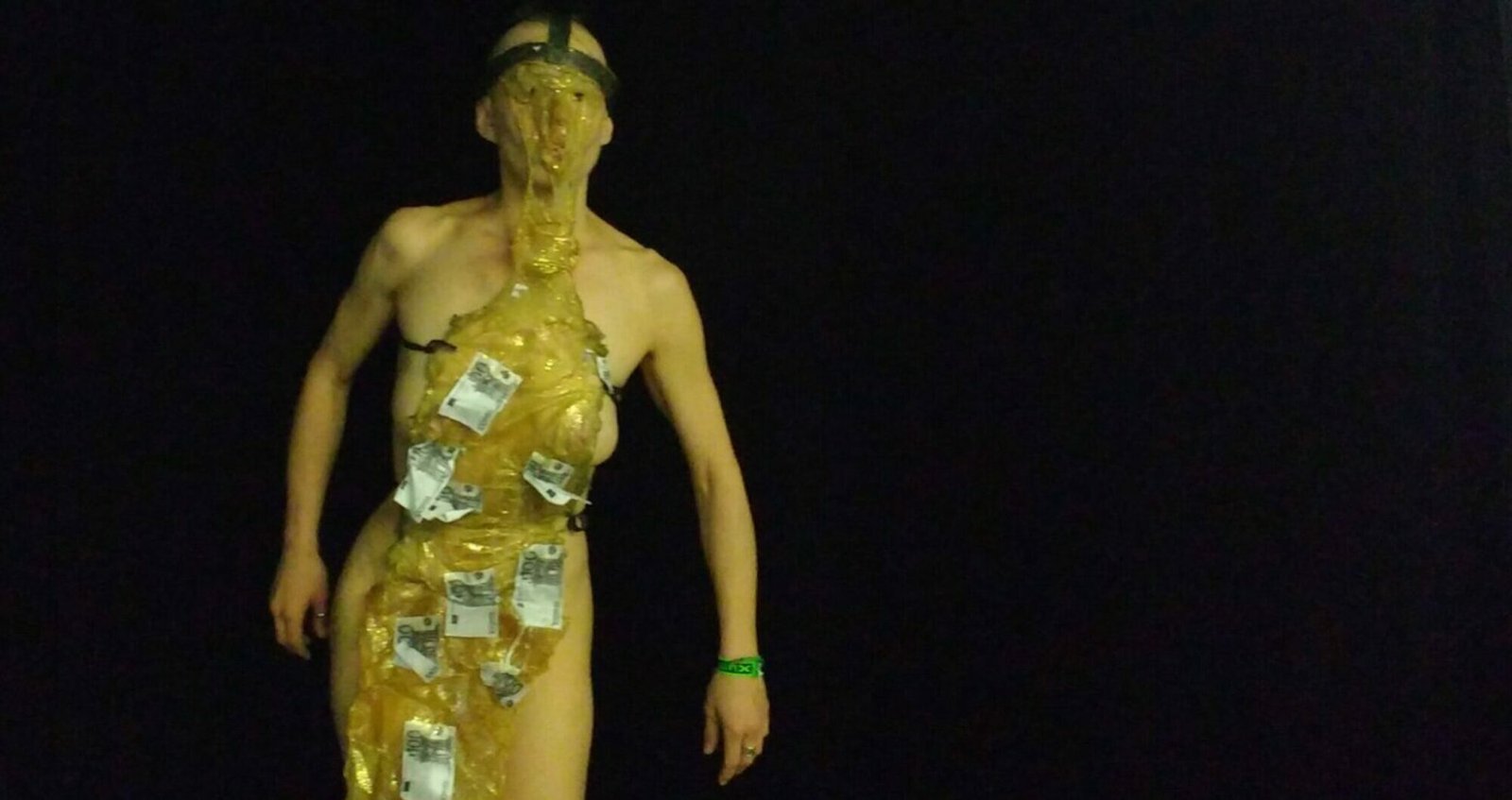[An abbreviated version of this essay is available in print in Bend Over Magazine Issue Summer/Fall 2011 http://bendovermagazine.com/]
I really thought I had IT figured out by the time I reached 25: polyamorous, whee!; queer, whee!; feminist, whee!: Liberation. I’d even found a partner around that time who was clearly a life partner, excited to live in open relationship with me. Smooth sailing. And suddenly, 32, I find myself smack in the middle of process. Still discovering. Nothing exactly figured out. And what’s more, fresh with entirely new ideas about how partnership might be conceived.
When I first entered an open relationship with my partner, even the smallest steps were hard, so we took it slow. Even when we expressed attraction to other people, it scared and confused us. When we kissed other people, we sometimes had to swallow feelings of jealousy, in part knowing that if we were in the same position, we would have done the same thing and to express too much jealousy might put our own freedoms at jeopardy. We also experienced mixed emotions, like being turned on by a lover’s lover, but scared to see it followed through. We both knew we were working towards a much larger sense of freedom, with each other and with ourselves.
I have to say that for me the best cure for jealousy has been practice. Practice over time makes me conceive of my relationship as open and no other way; neither of us can imagine being monogamous anymore. I also like to imagine my partner with another person and to experience seeing him have sex with another person so that I can deflate whatever imagined drama I have attached to the action. What’s more, I’ve found that it turns me on. My partner was with me the first time I had sex with another person within our relationship and vise versa.
In the beginning, I was really focused sexually on the newness of my partner, and I was afraid that anything I did outside of a monogamous relationship would put our relationship at risk, even though we’d vocalized that we were both “polyamorous.” I was fearful of losing what we were beginning to create by actually exercising my freedom. Yet I suspected that one day I would want to be able to explore this polyamorous identity I had come into the relationship proclaiming, so in the beginning we had to push even at our own boundaries.
Deciding our relationship was open meant not just the ability to have sex with other people but trying to think about the ways that sex and love can exist in various structures across various types of relationships. I wondered: how could this thought alone change my perspective on my relationships with other people and with myself?
In a monogamous relationship we don’t close ourselves off to the idea of having any intimacy with people outside our “primary,” we just close ourselves off to having a sexual intimacy with someone outside our “primary,” and sometimes this inevitable affects other types of intimacies. The emphasis of “faithfulness” generally lies almost entirely upon these boundaries, hinges upon this idea of sexual intimacy, and sometimes those bounds are difficult to define (specific types of touching, kissing, attraction at all, intention). But there are so many other intimacies to experience with each other, some of which for me feel a lot more intimate than actually having sex.
Deciding that sexual intimacy could be part of other relationships opened me to the idea of many different types of intimacies existing, in various combination, with other people. Important for me to learn—and continue to learn—is that if other relationships do offer the possibility of various intimacies, than perhaps not all intimacies should be expected from my partner. In other words, my partner needn’t be my sexual partner, roommate, housemate, best friend, confidant, movie partner, intellectual sparer, musical inspiration, artistic collaborator. Yet the sadness I would experience from a false expectation that he could be or should be is what a friend recently called a “ghost of conventionality.” And those ghosts are sometimes a struggle. But letting go of unfair expectations helps me gain the independence and self-sufficiency necessary to sustain a long-term relationship.
Some of my explorations with polyamory began with things unrelated to sex. Dancing was something I always enjoyed with other people, exploring how my body and movement reacted in combination with different people. Also, as a performer I have always been attracted to backstage culture, where inhibitions about privacy vanish. This is the kind of body intimacy that I love about the after part of sex. If this is allowed, why can’t sex be allowed, too? I knew that my partner would have to be someone who could understand and love these things about me. Even sharing one piece of writing with many people gave me insight into the ways that various readers interpret the same words and our relationship as such—amorous, erotic, sexual.
Yet sex is often the thing that invokes jealousy, sometimes to the breaking point in our relationships. When we first got together, my partner and I had this unspoken “rule”, that outside of our own, every other sexual relationship would be vacant of emotional attachment. How quickly we figured out we don’t function like that. Most often I would rather form an emotional bond with the people I have sex with. Even if we don’t have sex that often or even if we only have sex once, there’s nothing to prevent me from wanting to have longevity in our relationship with each other.
What’s more, how quickly I figured out that non-sexual intimacies often caused me personally way more jealousy than sex did. My partner’s artistic collaborations with other people can be just as jealousy-inducing as sex … and a two hour long discussion with someone that I can really spar with gets me just as hot as an orgasm.
Jealousy is one thing, but what are “we” afraid of? The biggest fear is that our partner, whom we love and trust, will fall in love with someone else. Right?
Not so sure. I started to think about how the “in love” definition is pretty varied. And to some degree, I feel like I’ve experienced those feelings of “in love” outside of my partnership; feelings of initial infatuation that lead me to wanting to learn everything about my beloved, like suddenly taking Thai cooking classes or learning to sail. Just because a person is not my primary does not mean that I don’t experience sadness at breakups, either. I suppose because when all possibilities are wide open, the idea that anything should strictly “end” is difficult for me.
Nevertheless, “Falling in love” is not “falling in partnership.” In fact, when I chose my partner it wasn’t just because I was in love with him, and not because of our sexual compatibility, but because I could visualize him as part of my family.
So what’s the even deeper fear? We fear that our partner will stop being our confidant or she’ll stop desiring us sexually. But neither of these things mean, necessarily, that the partnership is over, it might just have grown into a new agreement, or perhaps one person is, for some time, unable to provide every intimacy we wish for.
A friend recently suggested something that really blew my mind. I had always conceived of one “primary” partnership and many lovers. But this friend opened me up to the idea of many life partners, not all of whom, if any, provide us with sex. In other words, she took sex not out of the equation but placed it alongside all of our other needs equally.
Basically with each life partner we have the opportunity to form agreements and dreams about how our lives will be shared—as sexual partner or partners, as co-parent or co-parents, as housemate or housemate(s), etcetera. Some of these intersections can happen, but not all of them have to happen within one person.
I had a commitment ceremony with my one life partner, but what about the other people that have traveled with me and will continue to travel with me throughout the rest of my life? Should I, could I, also have a kind of commitment ceremony of my life with theirs? The possibility is exciting and the re-imagining opens me again.
It opens me in part to the idea that I can’t categorize my love for other people hierarchically; I can’t say one kind of love is more fulfilling, I can only describe my love specific to a person. Loving a person, lover or partner or friend, will always be exactly what loving that person is like and can be like no other. There is no one who uniquely replaces the role my partner shares in my life. Even if I were to accept more than one life partner in my life, they’d still never be alike.
How will this new imagination continue to guide me in this long process of learning?
–I’m open to finding out.

